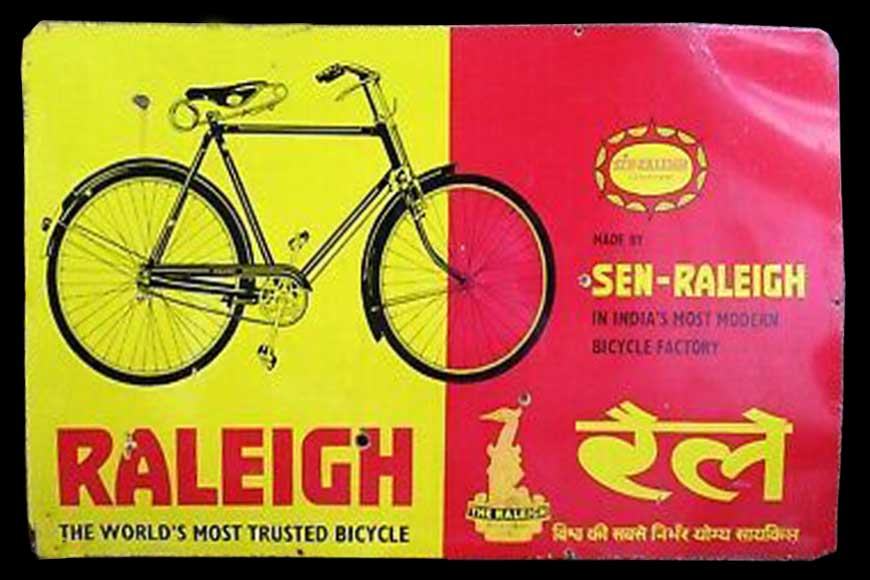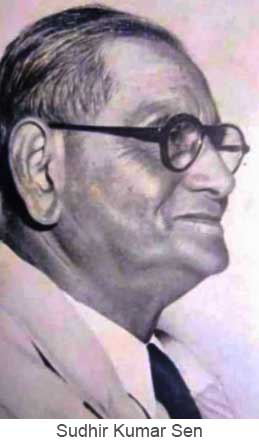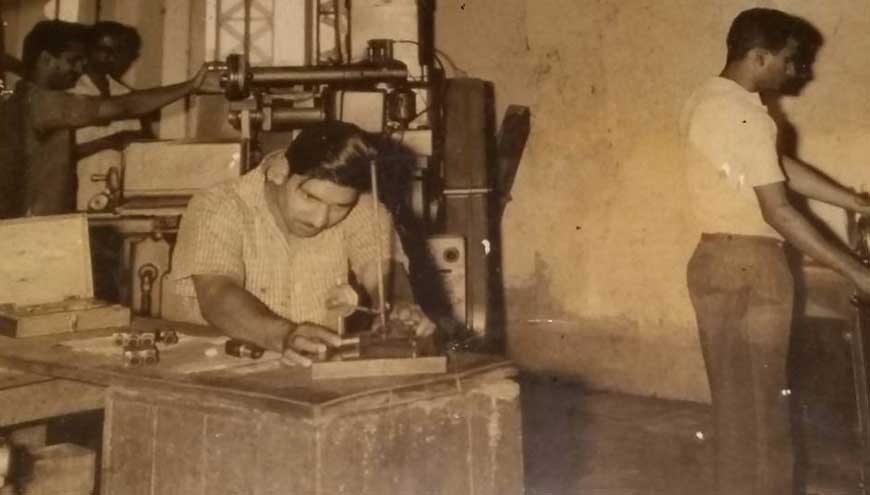19th century Bengali hero who introduced Bicycles to Indians

India got its first bicycle in the 19th century. According to historian David Arnold, around 35,000 bicycles were imported in India in 1910. Though initially meant for Europeans as a transport vehicle, it quickly gained popularity among Indians. The bicycle became the popular mode of transport and a symbol of the hardworking Indian. It offered more freedom and symbolized progressiveness and simplicity. Now, when the government’s attempts to popularize bicycles has gained momentum, the name of Sudhir Kumar Sen, a forgotten visionary industrialist has once again come to the fore. Being the most eco-friendly mode of transportation, cycling is also the perfect solution for a healthy lifestyle.
 Sudhir Kumar Sen is synonymous to the growth and development of bicycle industry in India. He was born on February 22, 1888 at Basanda village in Barishal district, now in Bangladesh. His parents, father Chandi Charan Sen and mother Bamasundari Devi, immensely influenced his life. He was a brilliant student who completed his graduation from Presidency College with honours in English Literature. Professor H.M Percival taught at the Presidency College when Sen was a student. Professor Percival inspired him to dream big. Dreams being the realm of alternate realities, romantic souls always search for them and the English department was able to groom people to think differently and to view the world around them with lots of empathy – it churned out the true romantic dreamers who could envisage ideal alternate realities. Sen was very proud of his college and always credited Professor Percival and Presidency College for his vision, growth and success.
Sudhir Kumar Sen is synonymous to the growth and development of bicycle industry in India. He was born on February 22, 1888 at Basanda village in Barishal district, now in Bangladesh. His parents, father Chandi Charan Sen and mother Bamasundari Devi, immensely influenced his life. He was a brilliant student who completed his graduation from Presidency College with honours in English Literature. Professor H.M Percival taught at the Presidency College when Sen was a student. Professor Percival inspired him to dream big. Dreams being the realm of alternate realities, romantic souls always search for them and the English department was able to groom people to think differently and to view the world around them with lots of empathy – it churned out the true romantic dreamers who could envisage ideal alternate realities. Sen was very proud of his college and always credited Professor Percival and Presidency College for his vision, growth and success.
India got its first bicycle in the 19th century. According to historian David Arnold, around 35,000 bicycles were imported in India in 1910. Though initially meant for Europeans as a transport vehicle, it quickly gained popularity among Indians. The bicycle became the popular mode of transport and a symbol of the hardworking Indian.
Sen was offered to join the Provincial Executive Service, but he declined to do so. This was the time when the Swadeshi Movement was at its peak and Indians were boycotting British goods as methods of agitation against Lord Curzon’s unpopular decision to Partition the Province of Bengal in 1905. Swept by the fervor of the Swadeshi Movement, many educated Bengali entrepreneurs came forward to set up business including Acharya Prafulla Chandra Roy, who set up Bengal Chemicals, Surendramohan Basu’s Duckback Company and Gour Mohun Dutta’s G.D. Pharmaceuticals (of Boroline fame).
Inspired by Acharya Roy’s vision, Sen started his first venture with a friend in 1909 with a capital of Rs 400/- only. He imported bicycles and bicycle spare parts from Europe and sold them in India. In order to encourage bicycle as a cheaper and convenient mode of transport, Sen began publishing a monthly magazine, Indian Cycle and Motor Journal, from 1917. He went to England in 1912 to participate in a business conference of European cycle manufacturers. Every year he travelled abroad to England, Germany, and America to enhance sales and marketing strategies and boost his business. It was during those trips that he decided to collaborate with the British cycle manufacturing establishment, Raleigh Bicycle Company.
 Tool Room of Sen Raleigh Cycle Factory, Asansol
Tool Room of Sen Raleigh Cycle Factory, Asansol
The first safety model bicycle was manufactured in Europe in 1885 and Raleigh Company was set up soon after. Raleigh’s bicycles were in great demand both in the domestic market as well as abroad. The company set up manufacturing units in different countries and collaborated with local companies to manufacture bicycles. Sen realized the need to utilize the Raleigh brand value in India and manufacture cycles locally. In 1952, Sen Set up Sen-Raleigh bicycle manufacturing unit in Kanyapur, Asansol. The vast (125,000 sq, ft) modern factory with state-of-the-art equipment had the capacity to manufacture 2,00,000 cycles annually. Initially, the accessories and various components of the bicycles were imported from England and Germany but within a couple of years, manufacturing of these components began in the factory at Asansol. The sturdy cycles gained huge popularity within a short time as the pricing was fixed keeping in mind the buying capacity of the common man. Sen not only concentrated on manufacturing the Sen-Raleigh bicycles but also imported other renowned bicycle brands like Humber, Robin Hood and popularized them in India. Sen-Raleigh bicycles were also exported to different countries abroad.
Sen-Raleigh Company was the only player and ruled the bicycle market in India for many decades as the sole manufacturer and distributer, but gradually other players joined the race and individual manufacturers set up factories in different states and made bicycles locally that they sold at a much cheaper price. Sen-Raleigh Company needed to change its strategy to remain in the race. Amid all this, on August 28, 1959, Sudhir Kumar Sen breathed his last while on a tour to Germany. During this time, the government encouraged the setting up and expansion of four wheeler industry in the country. The middle class was enticed to go for four wheeler vehicles. This gave a big blow to the bicycle market. Sen Raleigh was forced to cut down its price to remain in the business but that did not help and the company’s financial condition went for a downhill journey.
Sen realized the need to utilize the Raleigh brand value in India and manufacture cycles locally. In 1952, Sen Set up Sen-Raleigh bicycle manufacturing unit in Kanyapur, Asansol. The vast (125,000 sq, ft) modern factory with state-of-the-art equipment had the capacity to manufacture 2,00,000 cycles annually.
Finally, in 1975, the Central Government took over the management of the company and continued production under the brand name of Cycle Corporation of India Ltd. But by then the company was embroiled in a series of litigations that led to its closure in the 1990s. However, the Raleigh brand bicycles are still doing robust business abroad. Manufacturing of components are outsourced to companies in China, Taiwan and Thailand from where the cycles are manufactured in the main units at England and America. It is a pity that we Indians failed to continue our association with a premier brand and manufacture world class bicycles here in India.
The deserted factory, living quarters, and playground – the entire township at Kanyapur off Asansol stands as a silent observer to the golden phase of industrialization this place witnessed and then wilted and then died.
The Sen-Raleigh brand always held a very special place in the hearts of most Indians and still brings back memories of another era for many old-timers. It is not unusual to come across families who still get excited when they announce with pride their vintage possession: a Sen-Raleigh bicycle!










